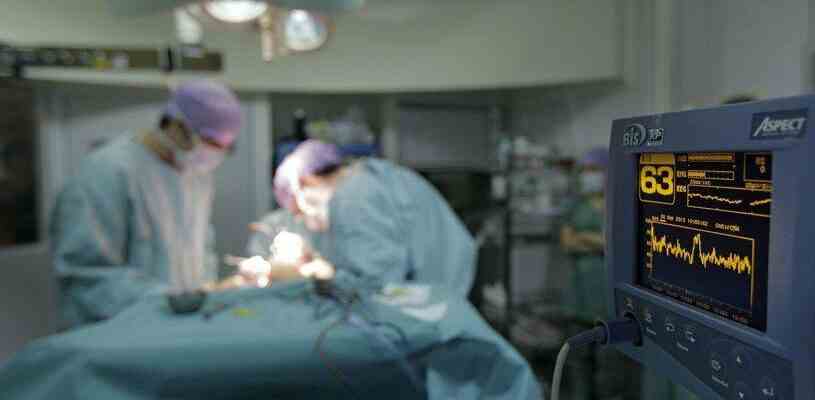The uterine transplant lasted almost eighteen hours, took place a month ago and is a feat. For the second time in France, a uterus transplant has been successfully performed, after a first successful transplant in March 2019 on a patient who is now expecting her second child. “The transplant on this new 36-year-old patient was carried out from the uterus of her older sister, with a very minimally invasive surgery”, explained Professor Jean-Marc Ayoubi, head of the obstetrics gynecology and medicine department of the reproduction of the Foch hospital in Suresnes (Hauts-de-Seine).
The patient who benefited from the transplant had Rokitansky syndrome (MRKH), responsible for infertility by uterine agenesis (she was born without a uterus), and which affects approximately one in 4,000 baby girl births. And for the teams at the Foch hospital, this new medical intervention therefore brings hope to patients born without a uterus or presenting uterine infertility caused by a hysterectomy (removal of the uterus) or a non-functional uterus.
“About 80 uterus transplants performed worldwide”
In March 2019, Professor Ayoubi and his teams had already performed a first transplant on a woman, Déborah Berlioz, suffering from the same syndrome. She received her mother’s womb and later became pregnant through an embryo transfer. After the success of the first transplant, Covid-19 had slowed down the professor’s research project, which began more than fifteen years ago and is the result of an international collaboration with the team of Professor Mats Branstrum, from the University of Gothenburg (Sweden).
“About 80 uterus transplants have so far been performed worldwide,” said the expert. You need a living, voluntary and related donor (either from the family or a close friend) and, of course, immunological compatibility tests are carried out. For her part, Déborah Berlioz is expecting a second child. After the birth, scheduled for next March, the transplanted uterus will be removed, which requires her to undergo anti-rejection treatment. “The clinical trial in which I took part authorized a maximum of two pregnancies in five years,” she said.
After a first “miracle” pregnancy, the 37-year-old young woman is delighted to be expecting a second “bonus” baby: “Before the transplant, I had no hope of ever becoming pregnant”.

